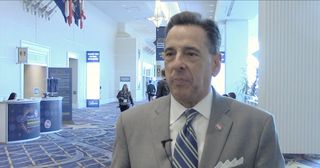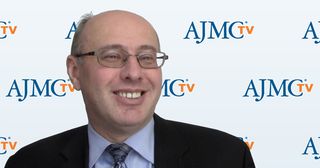
Oncology
Latest News
Latest Videos

More News

At the Association of Community Cancer Center’s 44th Annual Meeting & Cancer Center Business Summit, March 14-16, 2018, in Washington, DC, payer and physician representatives shared the stage with the president of a cancer foundation that is striving to break the barriers that prevent easy healthcare information exchange and access to cancer care.
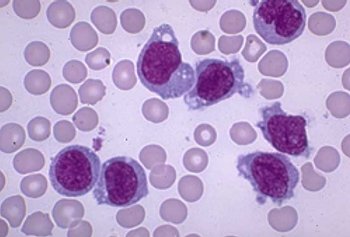
A new study recently published in Proceedings of the National Academy of Sciences has identified a possible solution for improving the efficacy of moxetumomab pasudotox, or moxe, in patients with relapsed and chemotherapy-resistant acute lymphoblastic leukemia.

Overview of alternative payment models and how leading national organizations are involved with linking quality improvement initiatives and payment reform.
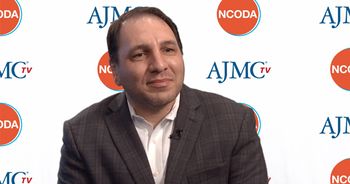
Patient education is critical for improving adherence as many patients don’t always know what their medications are or even how they can be taken with other medications they area already on, said Ali McBride, PharmD, MS, BCPS, clinical coordinator for University of Arizona Cancer Center.
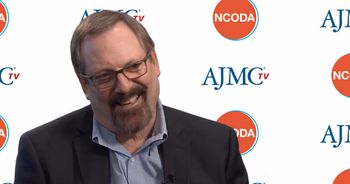
Information technology and an integrated clinical team can help improve medication adherence for patients receiving oral oncolytics, said Steven D'Amato, RPh, BSPharm, executive director of New England Cancer Specialists.

To achieve a similar capture rate for nonwhite patients as for white patients at age 50, screening ages would need to be reduced to 47 years for black and Asian women, and 46 years for Hispanic women.

The FDA has accepted a new supplemental Biologics License Application and granted Priority Review for Merck's pembrolizumab (Keytruda) for the treatment of advanced cervical cancer, marking the first filing acceptance for an anti–PD-1 therapy in cervical cancer.
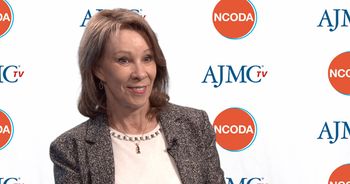
Linda Frisk, PharmD, of Arizona Oncology, discusses the role of the pharmacist in new value-based payment models and her experience with the Oncology Care Model (OCM).

The Institute for Clinical and Economic Review (ICER) is requesting public comment on 3 antiandrogen therapies for nonmetastatic castrate-resistant prostate cancer (nmCRPC): abiraterone, enzalutamide, and apalutamide.

Thomas Graf, MD, chief medical officer and vice president, Horizon Blue Cross Blue Shield of New Jersey, discusses the impact of increases in drug prices on oncology stakeholders.

Every week, The American Journal of Managed Care® recaps the top managed care news of the week, and you can now listen to it on our podcast, Managed Care Cast.

Thomas LeBlanc, MD, Duke Cancer Institute, discusses the trends of hospice care services used among patients with blood cancer compared with patients with solid tumors.

Scientists at St. Jude Children’s Research Hospital have developed a new tool to measure the impact of social networks on the coping skills of adolescent and young adult cancer survivors.

Patients who had breast cancer or lymphoma who were treated more than 3 times are more likely to develop congestive heart failure than those who did not have cancer, according to research being presented at the American College of Cardiology’s 67th Annual Scientific Session.

This week, the top managed care stories included Cigna's deal to buy Express Scripts; Seema Verma, Alex Azar, and Scott Gottlieb, MD, made the rounds at health conferences; an analysis finds FDA's accelerated approval pathway has been a success with hematology and oncology drugs.
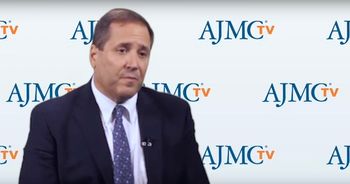
Care coordination is vital to ensure improved patient outcomes as both CMS and private payers are paying increased attention to it, pointed out Adam Brufsky, MD, PhD, co-director of the Comprehensive Breast Cancer Center at University of Pittsburgh. How is your institution infusing care coordination in its workflow?

Reviewing 25 years of experience with accelerated approvals (AAs) for malignant hematology and oncology drugs and biologics, FDA officials say that the AA program has demonstrated that it can be used successfully to expedite approval of safe, effective cancer therapies that balance uncertainty with the need to provide faster access to promising agents for serious and life-threatening diseases.

Proprietary technology helps overcome the problem of long travel distances for those taking part in clinical trials.

The FDA has authorized, with special controls, the first direct-to-consumer test that reports on 3 specific BRCA1/BRCA2 breast cancer gene mutations that are most common in people of Ashkenazi (Eastern European) Jewish descent.

Hospitals that used trained financial navigators were able to provide financial assistance for their patients with cancer, providing access to care that would otherwise be unaffordable.

Researchers have identified a molecular target that could allow chimeric antigen receptor (CAR) T-cell therapy to be used in treating patients with glioblastoma. Although the heterogeneous expression of tumor-associated antigens limits the efficacy for CAR-redirected T cells for the treatment of glioblastoma, chondroitin sulfate proteoglycan 4 (CSPG4), a cell surface type 1 transmembrane protein, is highly expressed in a majority of glioblastoma specimens with limited heterogeneity.

The first results of the Oncology Care Model (OCM), a 5-year bundled payment demonstration from CMS, were released recently, and at a session at the National Community Oncology Dispensing Association Spring Forum 2018, Mike Fazio of Archway Health discussed the reconciliation statements from the first performance period of OCM, and where practices can look to make improvements going forward.

As cancer treatments improve and death rates decline, more patients survive who are at risk of becoming addicted to pain medications they were prescribed to treat their cancer-related pain, explained Merrill Norton, PharmD, NCAC II, CCS, CCDP-D, of the University of Georgia.

Patients with cancer, many who are older and on Medicare, are finding their medications are becoming unaffordable, Michele McCourt, senior director of the CancerCare Co-Payment Assistance Foundation, explained at the Cost-Sharing Roundtable, co-hosted by the Patient Access Network Foundation and The American Journal of Managed Care®.

Every week, The American Journal of Managed Care® recaps the top managed care news of the week, and you can now listen to it on our podcast, Managed Care Cast.




